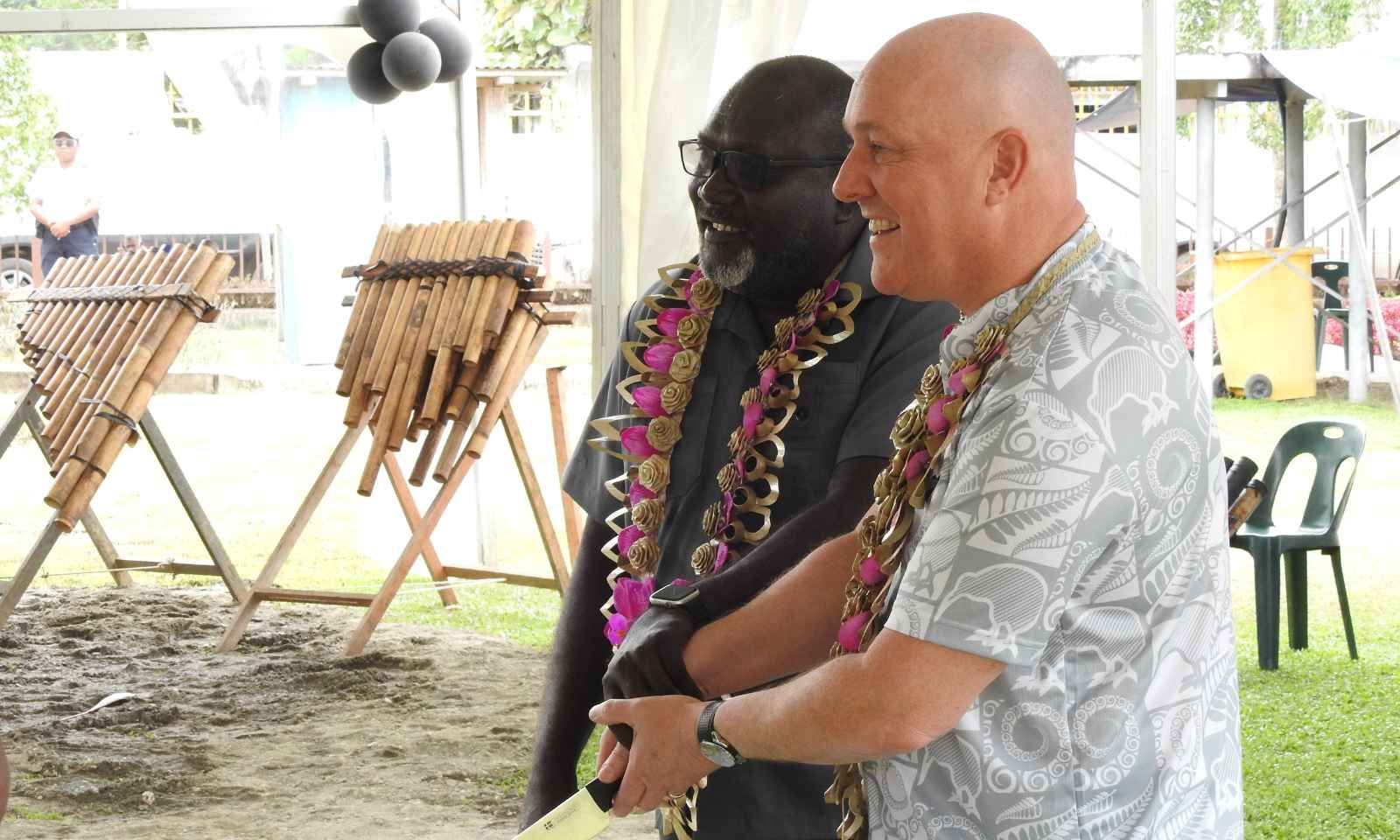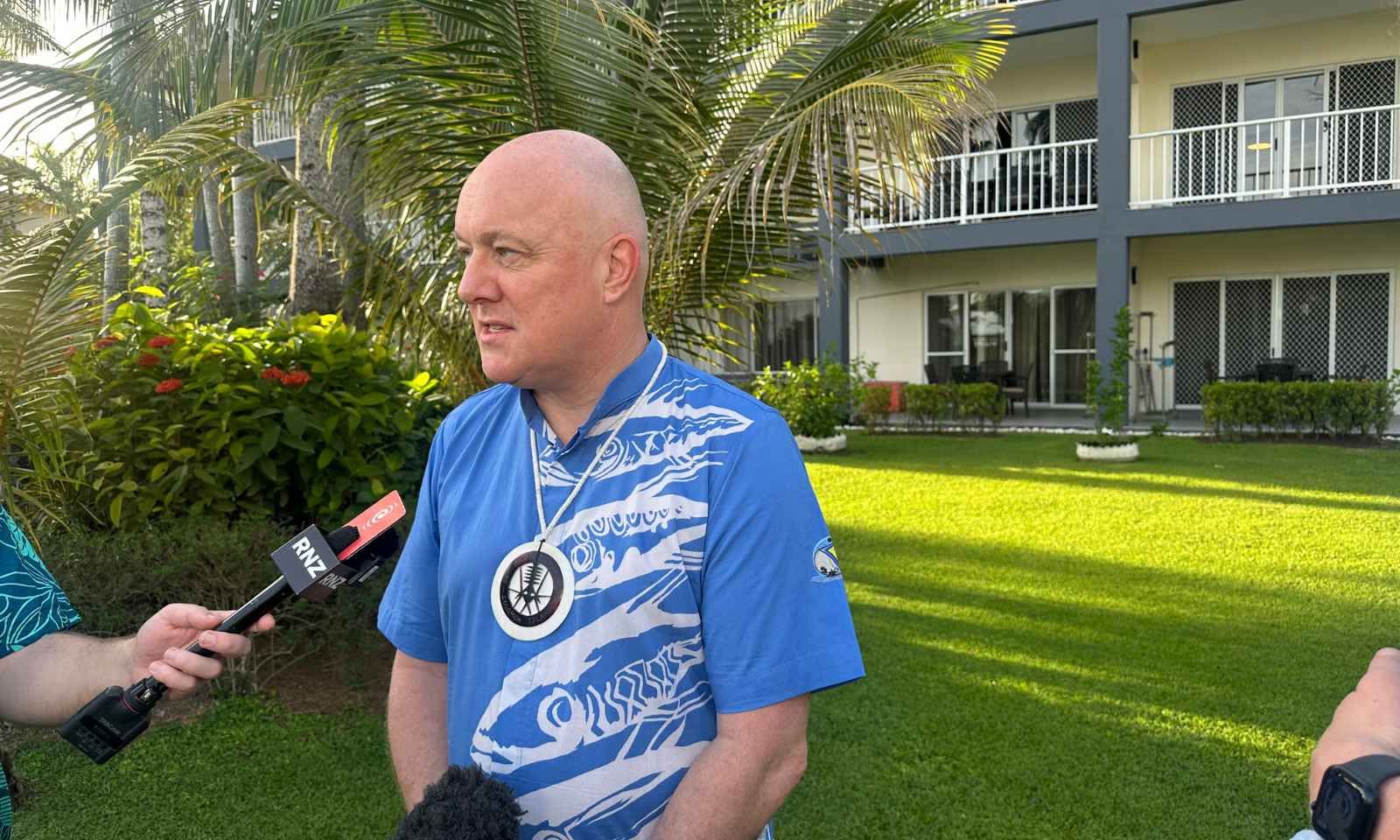

Tozen Leokana is the Solomon Islands' Minister for Education.
Photo/PMN News/Ala Vailala
Solomon Islands introduces policy to balance AI benefits and exam integrity
Education Minister Tozen Leokana says the initiative highlights the importance of accessibility and the need to support students in rural communities.



KiwiSaver changes may neglect low-income and Pacific workers - expert


Cook Islands wartime veterans finally get long overdue recognition


Tonga crash to 56-0 after discipline unravels in heavy defeat to Scots

KiwiSaver changes may neglect low-income and Pacific workers - expert


Cook Islands wartime veterans finally get long overdue recognition
The Solomon Islands’ Education Minister hopes a new policy will help tackle the use of artificial intelligence (AI) in school exams.
This comes as the government aims to manage the increasing use of artificial intelligence (AI) among students during exams.
Tozen Leokana is concerned about the rising trend of students using AI resources.
“We’re developing a policy that will tackle that,” Leokana says.
While the implementation of the policy is still in progress, the minister says he aims to harness the benefits of AI while minimising its misuse in learning environments.
Earlier this year, the Solomon Islands committed to developing an AI-driven education policy that includes a framework focused on transfer training, investment in digital infrastructure, and data privacy regulations, specifically emphasising AI and Science, Technology, Engineering, and Mathematics (STEM) education for future job opportunities.

The new education partnership, valued at SBD$300 million (NZ$61m), will enhance systems and capabilities for teacher management and organisational learning, as well as foster greater coherence, collaboration, and coordination among all education stakeholders. Photo/PMN News/Ala Vailala
Current statistics show that 155,000 pupils are enrolled in primary and secondary schools across the Solomon Islands.
Leokana says many students are relocating to urban areas for better educational opportunities.
He says accessibility remains a major challenge, particularly in remote regions within the outer islands. But improvements have been made over the years, thanks in part to foreign aid from countries like New Zealand.
Prime Minister Christopher Luxon has reiterated the importance of education, highlighting a $61 million investment over the next 10 years.
The investment aims to improve the delivery of education across the Solomon Islands, which includes nine provinces facing accessibility challenges to some islands.

Christopher Luxon was in Honiara last week for the 54th Pacific Islands Forum Leaders' Meeting. Photo/PMN News/Ala Vailala
“We've seen a lot of improvements in terms of infrastructure, in terms of making travel a bit easier for the rural communities,” Leokana says.
He says travel to these islands largely depends on boats, as many rural areas don't have airstrips.
Along with the access issues, Leokana is concerned about the potential loss of traditional knowledge and language due to the predominance of Western education.
Most lessons are conducted in English at all levels of schooling.
Leokana has discussed with his ministry the possibility of incorporating vernacular languages into the curriculum to preserve the richness of local cultures.
He also highlighted the difficulty some students face in attending school due to the need to help their families.
Listen to Tozen Leokana's full interview below.
“Students have to skip class just to go and work in the garden or get food to support their families. It’s really evident in our rural communities.”
Despite the challenges, Leokana remains optimistic about the future of education in the Solomon Islands, believing that young people will choose to stay and work within their home country rather than move overseas.
“A lot of Solomon Islanders love to come back and work in their country, and that is the beauty of those students who are going out.
“Despite the distance, the connections back to the country are really strong, and we love to come back and serve.”